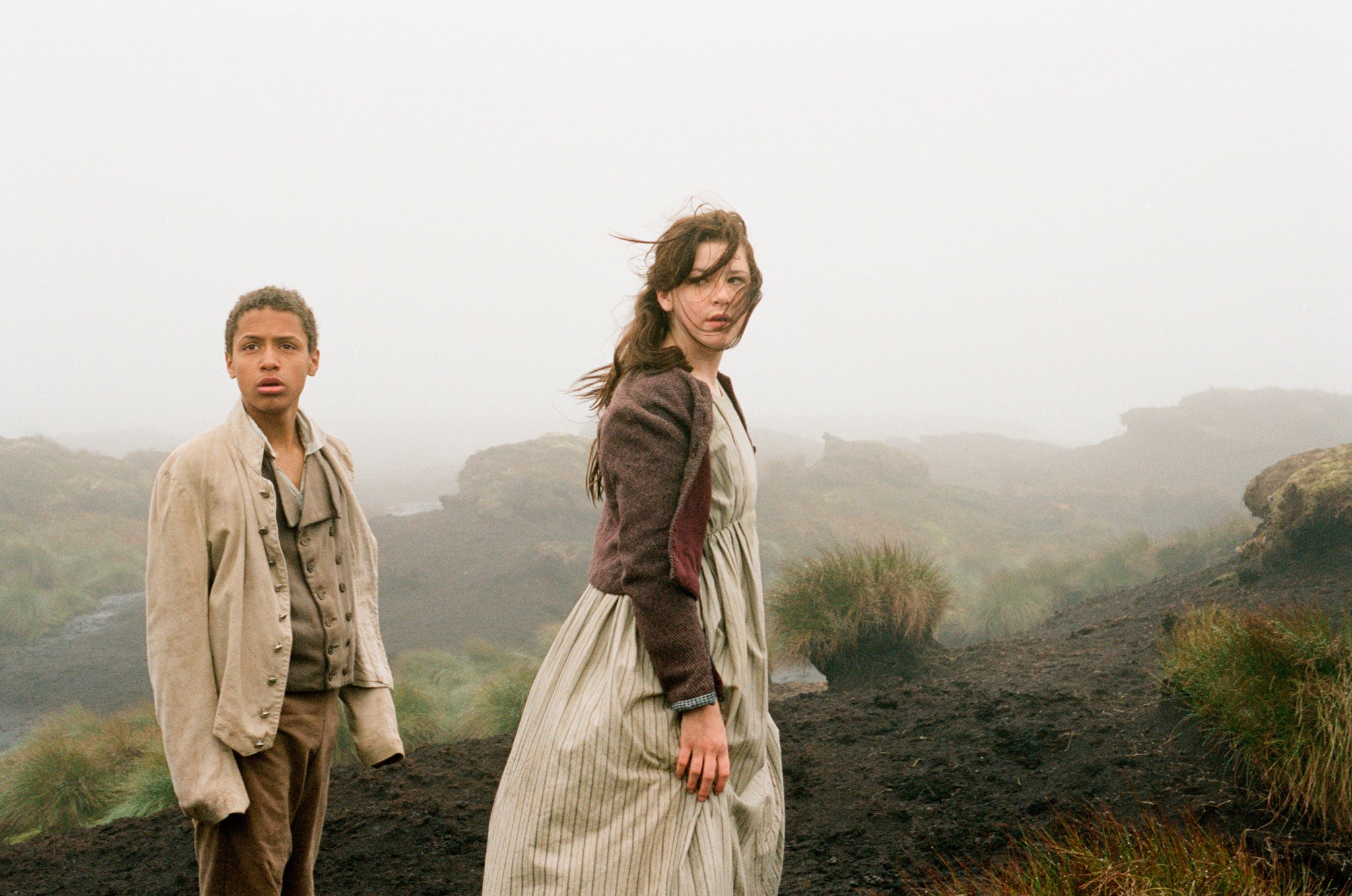The Lost Child by Caryl Phillips, book review: Wuthering Heights relived in post-war Britain
Phillips's dark and compelling novel is a familiar story of marriages gone wrong and of children who must find their own way in the world

Your support helps us to tell the story
From reproductive rights to climate change to Big Tech, The Independent is on the ground when the story is developing. Whether it's investigating the financials of Elon Musk's pro-Trump PAC or producing our latest documentary, 'The A Word', which shines a light on the American women fighting for reproductive rights, we know how important it is to parse out the facts from the messaging.
At such a critical moment in US history, we need reporters on the ground. Your donation allows us to keep sending journalists to speak to both sides of the story.
The Independent is trusted by Americans across the entire political spectrum. And unlike many other quality news outlets, we choose not to lock Americans out of our reporting and analysis with paywalls. We believe quality journalism should be available to everyone, paid for by those who can afford it.
Your support makes all the difference.Caryl Phillips's new novel continues his preoccupation with themes of origins, belonging and exclusion, by setting up a dialogue with one of the classics of English Literature – Wuthering Heights. The Lost Child tells the story of Monica Johnson, a promising student who drops out of Oxford in the 1950s to marry Julius Wilson, an overseas research student. It parallels the story of Heathcliff – the "dark-skinned gypsy" of Emily Brontë's novel, here imagined as the orphan of a freed slave – and also that of his creator.
What results is an intricately layered novel that opens up the notion of Englishness, taking the off-stage colonial element of Wuthering Heights and using it to test the resilience of relationships in a much more recent age, that of post-war, post-austerity Britain.
Yet at its heart The Lost Child is a more familiar story of marriages gone wrong and of children who must find their own way in the world. The catalyst is Monica's father, who tries to talk his daughter out of abandoning her studies. Ronald Johnson is far from a tyrant figure, however. He is essentially a good man constricted by the moral landscape of his times. He has no interest in his future son-in-law, and doesn't even know what country he comes from (neither does the reader), only that it is a "part of the world where decent standards of behaviour and respect for people's families were obviously alien concepts".
After the birth of their two sons, Monica and Julius's relationship soon founders. Julius is drawn into his own country's struggle for independence and eventually returns there. Monica, by this time bored with her subservient role, refuses to follow him. Having abandoned her academic career and her family she has nothing to fall back on, and her situation gradually deteriorates. Here a parallel is drawn with the life of Emily Brontë after she had returned from her foreign travels, her health and her heart broken, her sense of reality wavering between the existing world and the world of her fictional creation.
Monica's story becomes slightly harder to understand, though, because her decline seems not to be wholly explained by the failure of her marriage. She was, like Emily, a brilliant and self-willed child, yet her determination seems to vanish in her later life. It is as though she has put so much of herself into her marriage that there is nothing left of her when the marriage ends.
The nature of the rift with her parents is also difficult to grasp. Supposedly cast out, on breaking up with Julius she returns to their territory, rather than staying to build her own life in London. We can understand what drives her later despair, as her situation is rocked by darker tragedies, but a deeper conflict is not illuminated by Monica's own section of first-person narration since she is not the best person, at this point, to describe herself.
It is the father-daughter relationship that drives this novel. Mothers are mostly absent (as they were for the Brontës), and the mixed-race children are essentially points of narrative energy rather than centres of consciousness. Ronald Johnson stands as someone confused rather than angry, and like the Reverend Patrick Brontë, and Wuthering Heights' Mr Earnshaw (reimagined as Heathcliff's father), he never quite gives up on his children. If balance is to be achieved between these lost and disparate people, it is the fathers, this complex and compelling novel suggests, who will do the work of reconciliation.
Join our commenting forum
Join thought-provoking conversations, follow other Independent readers and see their replies
Comments